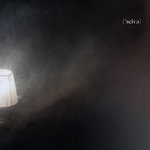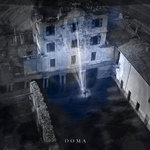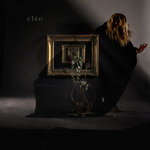bio - RELEASES - INTERVIEWS - REVIEWS
|
RELEASES
-
セルヴァOct 2019
-
D O M AFeb 2018
-
eléoJun 2016
-
lajf həbɪtʃuəlOct 2014
REVIEWS
metalitalia.comThe return of the Selva takes place through a compact and arrembante work: only two tracks (for a total length of time anyway) for the Italian trio, which with "Doma", at the stylistic level, seems to want to build a bridge between the iridescent debut album "Life Habitual "and the darkest and most tense" Elèo ". A work that focuses on the now customary mixture of ideas related to the screame tradition and more recent black metal trends, but which, unlike the previous album, seems to put the expressive qualities of the individual group members more than ever, leaving more space for more spontaneous emotions and a few more strokes of color. We were getting used to listening to the trio in a very grim and obsessive guise, but both "Silen" and "Joy" manage to combine drama and dynamism, revolving around elaborate constructs that also manage to indulge in more dilated and serene descents. In short, the atmosphere becomes sparser, the beats slow down and the remarkable melodic taste of the training has again a way to emerge with excellent results. Enriched by an interesting cover and a raw and organic production in the best sense of the term, "Doma" thus reveals itself as a good level exit, technically cured and appreciable in its soundtrack structure. Talent and passion are qualities that certainly do not lack for the young Lombard group, which successfully comes out of this new test bench, managing to project the audience with its sound frames in an enveloping and often magically surreal context. "Post" black metal or screamo does not matter; it is the emotion at the bottom of winning.

Vice.com
The ['selvə] return, from here on always and in any case Selva because the character map for the phonetic signs is too uncomfortable, from Lodi, and they return stealthily. D O M A arrives two years after eléo, which was simply the best violent thing of 2016 in Italy, a record that tinnitus makes me worse every time I start it. The three boys of the bass evidently realized they had done a lot of harm to a lot of people, because DOMA distances themselves partially: meanwhile it is an EP, with two tracks for ten and thirteen minutes (so long, even for the standards dei Selva), but above all slows down. eléo left no escape, there was not a moment to breathe, because if by chance it happened that a crack opened in that wall of devastation, you were still too shocked to do anything other than to gasp in total despair; D O M A, on the other hand, continues to suffer with admirable constancy, but without the enthusiasm, without the urgency of the previous album, partially drawing closer to what the trio had put on display in the debut Lajf həbɪtʃuəl. But DOMA is also a work released four years after its debut, with all the experience and awareness that Selva have accumulated in the meantime, including dates scattered throughout the worst corners of Italy and personal maturation, so, to use terminology technique, it's really cool. The sounds are much less sharp and sharp than in the past, and one almost thinks that in addition to the screamo and the cascadic black metal in Lodi it has sometimes gone through the Slavic blackgaze (small things of the Drudkh, for example) and in small doses. The instruments are more amalgamated, and in these two tracks there is a background softness that almost cradles you while you suffer like a desperate person. The melodies are more evident, the voice is not in the foreground but amalgamated with the rest of the instrumentation and it comes out even less metal and more post-stuff. I personally am more on the assault-bayonet-and-do-the-pieces-any-thing school and I hope this EP is just a detour to show that the Selva are good in any capacity, even the most staid, but that with the next record they return to throw down the walls taking them to headers, nevertheless it is necessary to recognize to these boys of the enviable abilities: every time that they publish something, that something deserves.

longliverocknroll
The Selva return with a new album two years after the release of their first work "Life Habitual" and, compared to the latter, they are a bit messy about the cards: if the symbolic and allusive imprint of their covers remains unchanged (particularly disturbing that of "Life Habitual", very refined and hypnotic, that of "eléo"), the same cannot be said of their sound. In this last effort, composed of four long passages, the environmental and melodic component is reduced to a few, rare turns. There is no trace of screamo.The Lombard band focuses everything on the mass of sound of their post-black metal, proposed with a live recording; the aim is to bring listening closer to the experience that ours can offer live (which is quite impressive, as known to those who have seen them perform at least once).Impossible not to applaud the choice, in a musical world where the recordings, in general, have reached apexes of reworking such as to rarely represent only a sincere exposition of a band's sound. In a similar position, however, the pitfalls are not lacking and in fact I cannot tell myself completely convinced of the result.That the band relates to the Deafheaven sound is evident from the first listenings, so it should not be surprising that the mastering of the record was taken care of by Jack Shirley (The Atomic Garden recording studio), which the Californian band has entrusted to " Sunbather ”and“ New Bermuda ”. The impression is felt but, if perhaps it is enough to bring this production closer to the level of the first album mentioned, we are rather distant from the quality of "New Bermuda".Due to a mix that is not always excellent, the pieces often retain their thickness and swelling but become a bit magmatic, confused and the punch suffers. It must be said, however, that this record was not clearly designed for listening to bimbiminchia, on poor quality terminals; on vinyl it is probable that, although the aforementioned defects do not fail, it conveys quite another feeling. On less than decent systems, however, much of its musical content is lost. Taking a balance within the reference genre, I would say that it settles on average and in any case above some pre-2010 records considered as reference (but not in important productions such as Agalloch and the like).Net of this fact, however, the band's performance is an excellent compensation: more realists than the king, one might say, the three boys (re) take a genre to the extreme that others (Wolves in the Throne Room, Nachtmystium, Leviathan etc.) have chosen over time to soften and clean up; abrasive and disjointed guitar sounds in classic black metal style, furious and desperate vocals, almost without lyrical content, which seem to transcend the vocals and become screams delivered in the dark (perhaps too monotonous, to my taste, but still valid), rhythm section linear but ruthless.The disc opens with "soire" and for two abundant minutes we are hit by blast beats, total saturation and apocalypse. Then you breathe with the guitar break, but the air is full of poison. When fury resumes, whirling, there is no expectation that it will subside and in fact does not happen, until the last second of the severed end."Alma" is perhaps the most varied (and longest) piece, capable of exploring different atmospheres: from the opening riff, a mid-tempo with dissonant and threatening guitar bending, to doom openings, black brutality and even a looping riff in odd with vague stoner flavors. The surprise comes in three quarters, when one could think that the piece had said it all. The Selvas perhaps grant themselves the only moment of emptiness of the disc and leave room for an intervention with the bows of Nicola Manzan (Bologna Violenta): very classic and simple, with that fraudulent serenity so dear to Mogwai or Castevet that preludes, in effect , at the only moment of timid musical optimism when the full band returns."Indaco" begins wildly, in what is perhaps the most traditional black metal section of the album. The piece however, animated by a predominance of instrumental parts, also knows how to slow down and reduce the dynamics to make us appreciate, now yes, the naturalness of the sockets, especially those of drums (perhaps the most sacrificed instrument in this production). Everything is so suspended and beautiful that one regrets it is the only opportunity to enjoy these atmospheres. The song goes to settle on a ternary that accompanies us to the end, with the tremolo guitar that binds to the next song.
.





